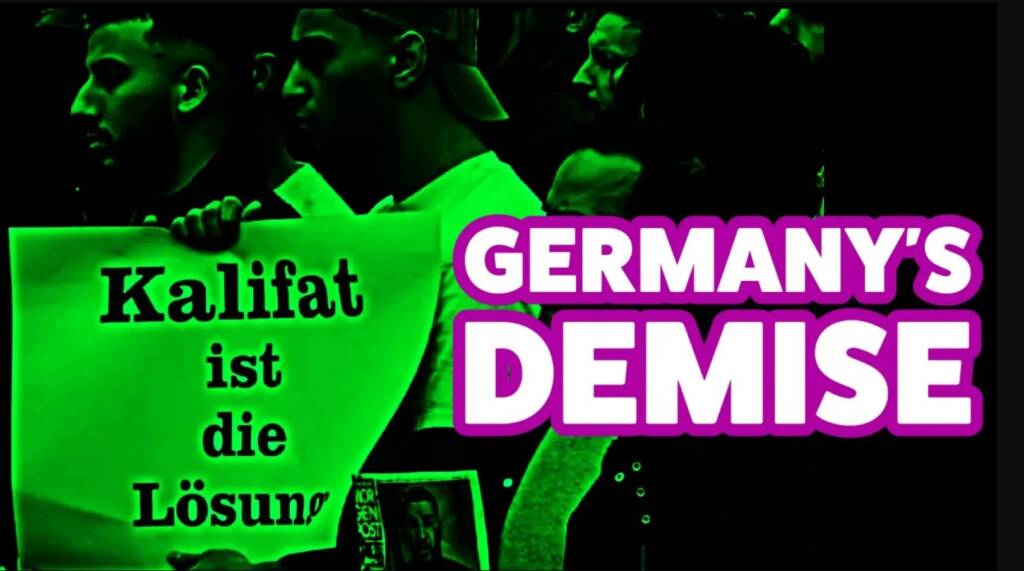The recent Islamist demonstration in Hamburg, Germany, where over 1,000 protesters gathered, exemplifies the growing visibility and influence of Islamist movements within Germany. This event, reported by Die Welt, took place in the Steindamm neighborhood and saw participants fervently advocating for Islamic fundamentalism with signs proclaiming “Caliphate is the solution.” Such slogans highlight a radical ideological stance that seeks not merely a religious expression but a political assertion— the establishment of a caliphate.
The chants of “Allahu Akbar” during the protest, although a common religious phrase, in this context underscore the politicized nature of the gathering. The organizing group, Muslim Interaktiv, has portrayed the demonstration as a stand against the demonization of Islamic life in Germany, positioning it within a broader narrative of combating Islamophobia. Their statements on social media stress unity against biased media portrayal, suggesting a strategic approach to reshaping public perception and discourse concerning Muslims in Germany.
Moreover, the timing of this protest aligns with broader geopolitical tensions, notably the Israel-Hamas conflict, which has also stirred significant global responses including anti-Israel protests. Such international events often galvanize local Islamist movements, providing them with platforms to link local grievances to global causes, thereby amplifying their message.
The political dimension of these protests is further complicated by the backdrop of violence and conflict, such as the recent Hamas attack on Israel during Simchat Torah, which resulted in numerous Israeli civilian casualties and a strong military response. This global context not only intensifies the local demonstrations but also challenges the managing capabilities of local authorities, as evidenced by the preventative measures taken by Berlin police against a planned pro-Palestinian rally.
This demonstration in Hamburg is not an isolated incident but a reflection of a larger, more concerning trend where Islamist ideological movements are gaining momentum in Western societies. They are increasingly using public demonstrations to assert their political ideologies, often intertwining religious sentiments with political agendas, which poses significant challenges for societal integration and security.
Islamist extremism in Germany has noticeably increased, presenting a significant security concern. The landscape of Islamist groups includes a variety of organizations with varying ideologies and methods.
One notable group is Ansar al-Asir, which primarily focuses on advocating for Muslim prisoners, many of whom have ties to jihadist activities. Despite its guise as a prisoners’ rights organization, it promotes a Salafist agenda.
Another significant group is Milli Gurus, rooted in the teachings of Turkish Islamist Necmettin Erbakan. It is characterized by its anti-Western and antisemitic rhetoric, though it avoids advocating violent upheaval, instead emphasizing ideological work towards establishing an Islamic state.
The Wolfsburg terrorist cell, a group significantly influenced by Islamic State operatives, highlights the direct threat of violent jihadism. This group’s members, many of whom traveled to Syria, underscores the transnational aspect of the threat.
Die Wahre Religion (The True Religion), led by Ibrahim Abu Naji, and the Abu Walaa network are also prominent. Both have been linked to ISIS and have been involved in radicalizing individuals and facilitating their journey to ISIS territories.
The rise of these groups has been paralleled by a general increase in Salafist ideology within Germany. As of 2018, a significant number of individuals are considered potential threats by German security agencies due to their extremist views.
Online platforms, particularly the Dark Web, have exacerbated the situation by enabling the dissemination of extremist material and the coordination of terrorist activities from afar. This cyber aspect of radicalization has made prevention and intervention more challenging.
Moreover, the offline support mechanisms, like extremist mosques, continue to play a critical role in the radicalization process. Despite surveillance, these mosques remain integral to the recruitment and organization of potential jihadists.
The German government has taken a dual approach to counter this threat. It includes both “hard” measures, such as the establishment of the Joint Counter-Terrorism Center to coordinate among security agencies, and “soft” measures like community-based programs aimed at preventing radicalization.
To address these issues effectively, it is imperative to understand the full scope of Islamist extremism in Germany, recognizing both its ideological and operational dimensions. This understanding is crucial for implementing effective countermeasures and ultimately reducing the influence of extremist ideologies within the Muslim community and broader German society.
